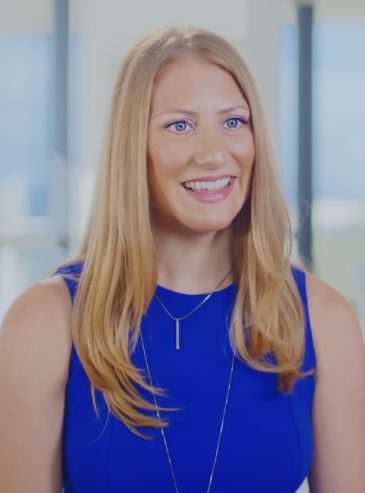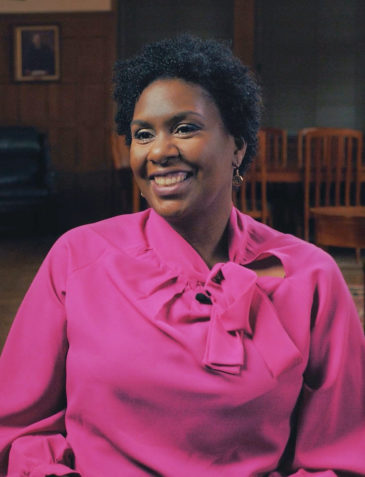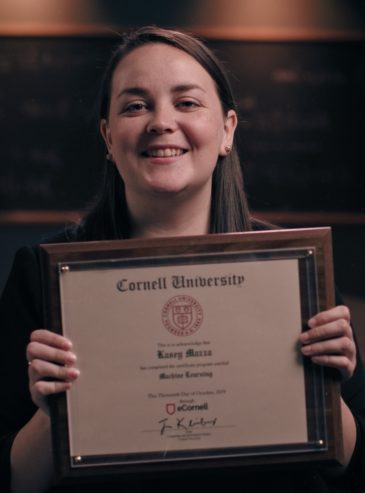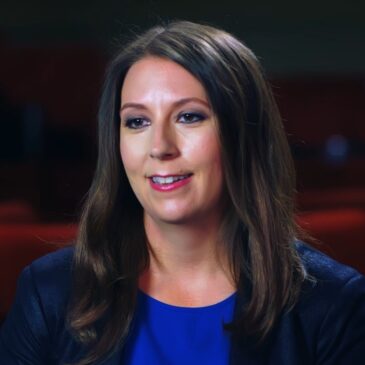STAND APART

Anyone involved in decisions surrounding real estate investing, or its development, financing, or management, needs to be conversant in and informed about property management. To be successful in real estate, you need to organize the daunting and often seemingly chaotic real estate processes into a clear, logical, and coherent whole.
This program provides you with the knowledge and skills you need to fully understand the integral components of the real estate business. By exploring a potential asset from the perspective of the owner as well as the property manager, you will acquire a robust skill set pertaining to the development process, project planning, and project implementation. The coursework will equip you with the tools you need to address property management issues including labor, code, financial management, and renovations, as well as the opportunity to explore some of the common issues and solutions associated with building systems. At the conclusion of the program, you will determine a comprehensive sustainability strategy for a property and identify the necessary steps to align it with day-to-day operations.
As real estate asset manager, you are steward of an owner's property, responsible for managing it to help achieve the owner's goals and increase its value. To guide you in this challenging role, you need a comprehensive road map for decision making: the Asset Management Strategic Plan. This course focuses on teaching you how to build this strategic plan and on developing your understanding of the asset manager role, its activities, and different management approaches. Beyond best practices and expert insights, this course also provides you with ample opportunities to practice new skills and an applied toolkit for real-world real estate asset management.
You are required to have completed the following course or have equivalent experience before taking this course:
- Leading Successful Property Management Operations
Within the commercial real estate industry, it is vital to develop a deep understanding of an asset's condition as well as the market in which it competes. There are several strategies for optimizing your occupancy and lease rates through an evaluation of the competitive landscape. This critical look at your market environment will enable you to best position your real estate assets in terms of lease structures, leasing trends, term expectations, and much more.
This course has been designed to simulate the way in which asset managers, along with those working in leasing departments, gather information and develop a leasing strategy. You will create a leasing strategy to convey the pertinent data about an asset and the market landscape to a particular audience. This course will train your eye to scan a property for key indicators of physical and financial health. Using a variety of downloadable tools, you will determine how to gather data for analysis that will provide insight and inform decision making for every step of the cycle of tenancy.
In commercial real estate, managing the upkeep of the physical asset is critical for multiple reasons, including occupant safety, meeting legal occupancy requirements, functionality of systems, efficiencies of systems, productivity of occupants, maintaining asset value, and more. Successfully optimizing the functionality of a building requires a strategic approach to maintenance activities and equipment selection, as well as continually seeking new technologies, devices, and practices to improve building performance and reduce departmental expenses. In this course, you will access important building management strategies and best practices, professional expert interviews, and exercises that bring various strategies to light.
This course has been designed to simulate the way in which asset managers, building managers, and other stakeholders gather, analyze, and use various forms of building maintenance information to make decisions. Throughout this course, you will develop a robust tool kit of skills and resources to deal with property management issues including labor, code, financial management, and renovations. As you build your knowledge and skills in facilities management, you will be able to offer valuable recommendations and ask pertinent questions that will improve any asset's physical functionality and enhance the business's financial performance.
Large buildings are some of the leading consumers of resources such as raw materials, electricity, and water. They also generate an incredible amount of waste. Customers and potential lessees now expect asset management to be transparent in their deployment of sustainable practices. On the flip side of this expectation, it has never been easier to make, measure, and communicate improvement in the area of sustainable operation. In this course, you will discover the importance of depth, clarity, and transparency when developing a sustainability strategy. You will then determine how to align your everyday efficiency goals with your overall sustainability strategy through environmental policies and practices, as well as the products you choose.
Taking it a step further, you will investigate the popular “green” certification standards and the options available for new development projects and existing buildings. You will make on-site observations of a LEED-certified building and explore the criteria making the LEED and Green Globes programs the international benchmarks for green building design and operation.
Beyond building design, there are valuable opportunities to empower and encourage your employees and/or residents to adopt sustainable practices by establishing a “green team” within your building or company. This team usually includes individuals passionate about sustainability and preserving the environment, so they will often be happy to help ensure your sustainability goals are met, in turn having a positive effect on waste reduction and, thus, your bottom line.

eCornell was truly one of the best investments I made in my entire career and it’s what brought me to where I am now.
eCornell was truly one of the best investments I made in my entire career and it’s what brought me to where I am now.

What I wanted was something that had an exceptional caliber of professionals and professors, and eCornell actually gave me that.
What I wanted was something that had an exceptional caliber of professionals and professors, and eCornell actually gave me that.
- View slide #1
- View slide #2
- View slide #3
- View slide #4
- View slide #5
top Minds
100% Online
that fit your life and career.
career



